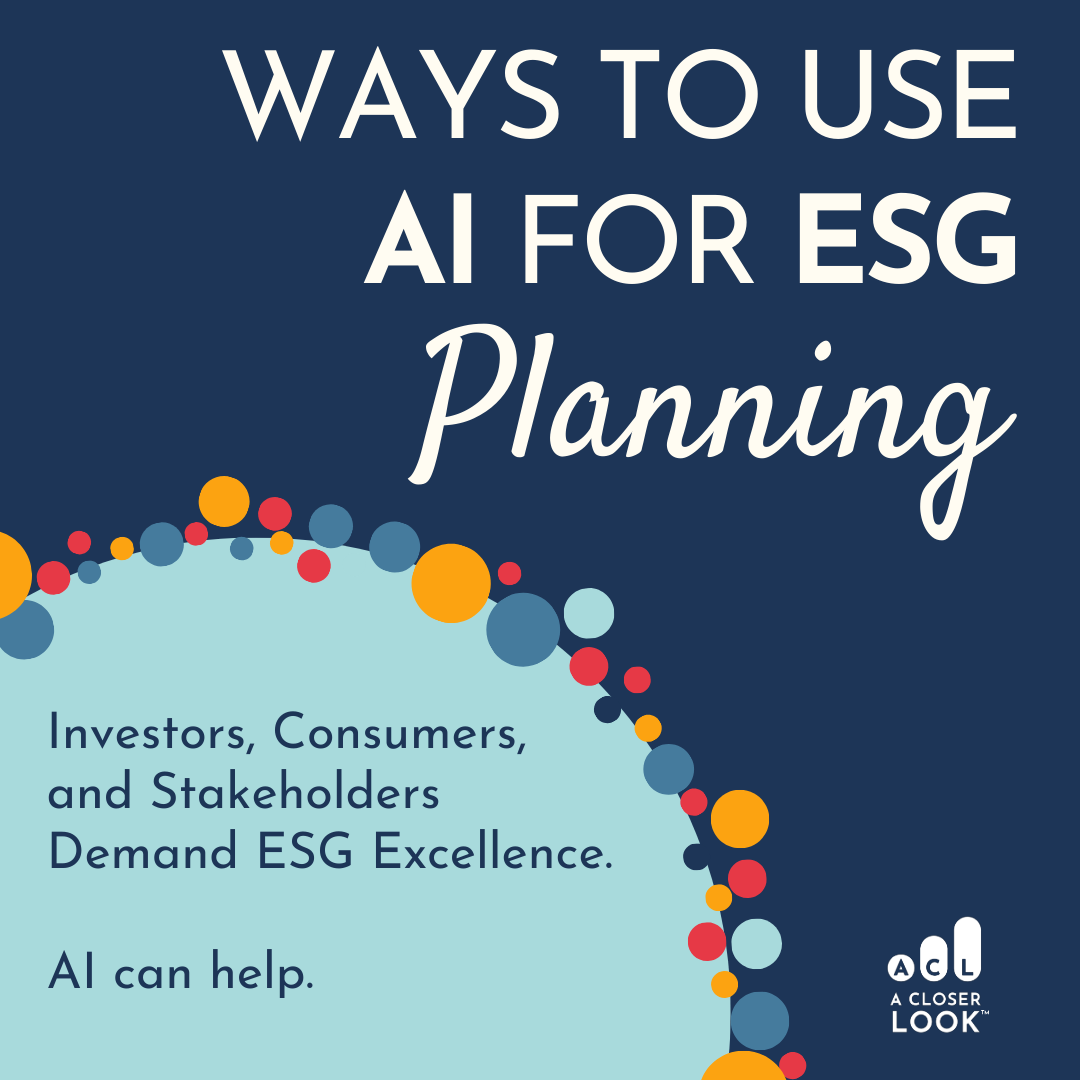
Sustainable Synergy: How AI and ESG Are Transforming Businesses for a Better Tomorrow
Here are some steps companies should be taking now to better align their ESG strategies with AI implementation:
1. Develop a Comprehensive ESG strategy: If you do not have one, you are behind the curve. Businesses should establish a clear ESG strategy that aligns with their core values and long-term objectives.
2. Invest in Data Collection and Analytics Capabilities: To fully leverage AI for ESG initiatives, organizations need robust data collection and analytics capabilities. This involves investing in data infrastructure, data quality management, and analytics tools.
3. Foster Partnerships and Collaboration: Collaboration between businesses, governments, and AI experts is crucial to drive innovation and address complex ESG challenges. Companies should actively seek partnerships with technology providers, academia, NGOs, and industry peers to exchange best practices around AI driven solutions.
4. Ensure Ethical and Responsible AI Implementation: Businesses must prioritize ethics and responsible AI deployment. This involves establishing clear guidelines and frameworks for data privacy, bias mitigation, and algorithmic transparency.
5. Upskill and Reskill Workforce: The integration of AI technologies requires a workforce equipped with the necessary skills and knowledge. Organizations should invest in upskilling and reskilling programs to prepare employees for the AI-driven future and ensure their active participation in ESG initiatives.
The time to harness the power of AI for ESG initiatives is now, and those who proactively prepare will emerge as leaders in a responsible and sustainable future.